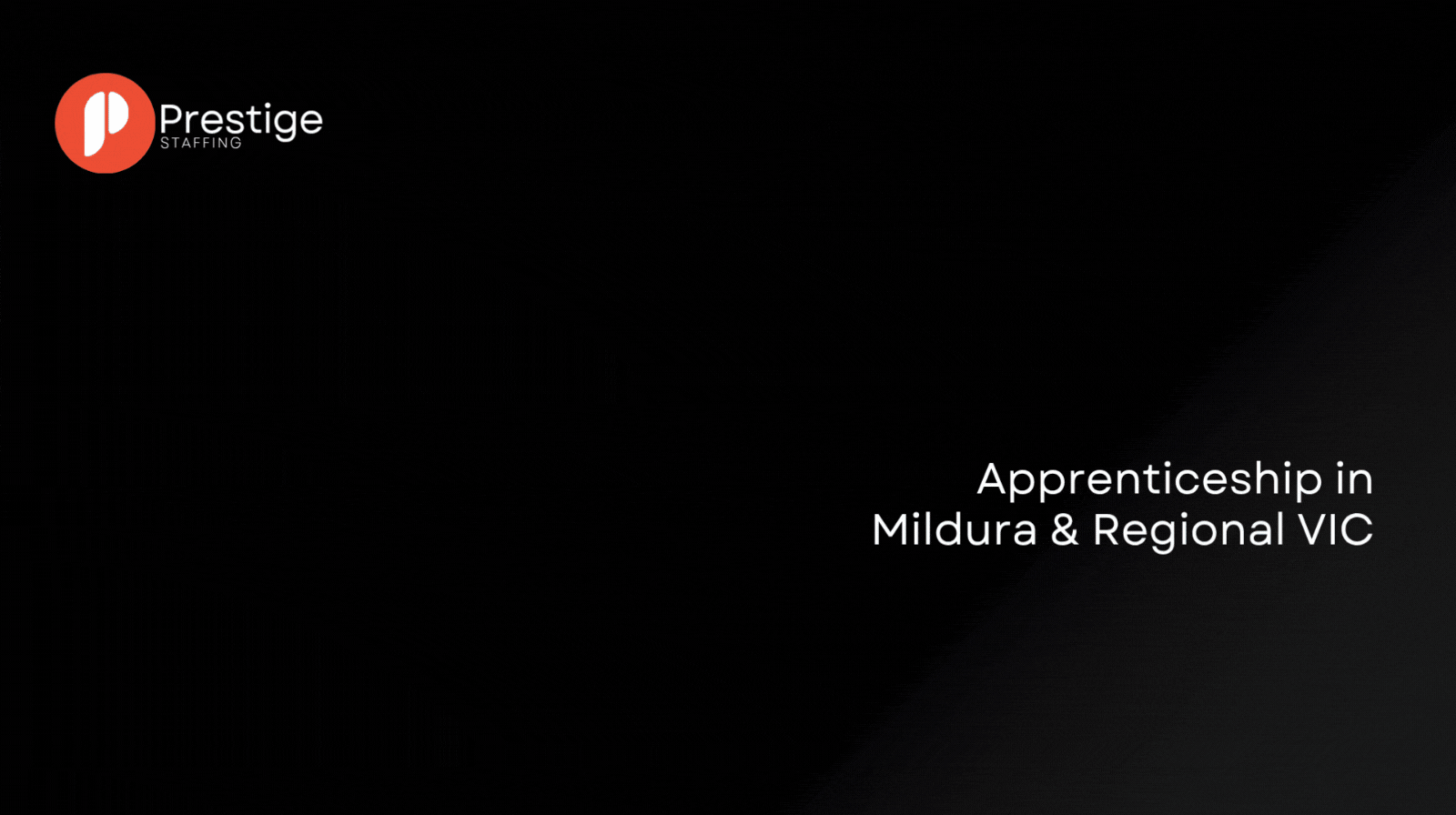
July 6, 2023
Unlocking the Potential of Your Shortlisted Candidates : Interview Tips

Unlocking the Potential of Your Shortlisted Candidates : Interview Tips
6 Interview Tips for Hiring Managers Working With Prestige Staffing
Working in the Recruitment Industry, we understand that finding the perfect candidate for your business goes beyond reviewing resumes and conducting basic interviews. However, HR Teams and Hiring Managers have a long list of tasks to focus on making it hard to find the time to conduct in-depth, engaging interviews with an even longer list of candidates who have applied for a job vacancy.
That's why we've compiled a comprehensive set of interview tips to help you uncover the true potential of the list of shortlisted candidates that we have provided you with. After our team of Recruitment Consultants have already pre-screened the list of candidates, informed them about your company, and assessed their skills and competencies for the role, it is now your time to step in and decide upon the right candidate for your business through interviews. But where do you start?
In this blog, we'll share valuable insights and strategies that go beyond the surface, ensuring that you make well-informed hiring decisions and find the ideal talent to propel your organisation forward. Whether you're a seasoned interviewer or new to the hiring process, these tips will equip you with the knowledge and tools to conduct engaging and effective interviews.
Deep Dive into Their Background: While you may already have a good understanding of the candidates' qualifications and experience, take this opportunity to dig deeper. Review their resumes and cover letters again before the interview, paying attention to specific skills, accomplishments, and areas of expertise. This knowledge will help you frame insightful questions and explore their capabilities more thoroughly.
Emphasise Cultural Fit: As our team of Recruitment Consultants has already prescreened each of the shortlisted candidates, you can focus more on evaluating their cultural fit within your organisation. Inquire about their values, work preferences, and how they envision contributing to your company's success. This discussion will give you a better sense of their alignment with your team dynamics and overall work environment. It's important to remember The Importance of Hiring for Human Skills!
Dive into Their Motivations: Ask candidates about their career aspirations, long-term goals, and what drives them professionally. This conversation will help you gauge their level of enthusiasm, commitment, and potential for growth within your company. This better understanding of what motivates the potential new employee will improve your employee retention! The candidate has already told you what they need from an employer to be inspired and engaged in their work! Use this to your advantage.
Assess Their Problem-Solving Skills: While candidates have already been preselected for their qualifications, it's important to evaluate their problem-solving abilities. Present them with real-life scenarios relevant to the position and observe their approach. Assess their critical thinking, creativity, and ability to navigate challenges effectively. This will give you insights into their decision-making process and their potential to handle complex tasks. This will also allow you to create a more diverse workforce; you want people who can think outside the box and see things from another perspective! This is the key to reaching your business's optimum success.
Focus on Communication Skills: Effective communication is key in any role. Use the interview as an opportunity to assess candidates' communication abilities, both verbal and written. Look for candidates who can convey their thoughts clearly, listen actively, and adapt their communication style to various situations.
Allow for a Two-Way Conversation: Remember to create an open and welcoming atmosphere during the interview. Encourage candidates to ask questions about your company, team, and the role they're being considered for. This will enable you to assess their genuine interest, curiosity, and willingness to engage. A candidate who asks thoughtful questions demonstrates their investment in the opportunity.
By leveraging these interview tips, you can effectively evaluate the shortlisted candidates provided by Prestige Staffing. Our goal is to facilitate your hiring process by narrowing down the pool to exceptional individuals who have the potential to contribute significantly to your organisation's success. Should you require further assistance or have questions during the interview process, please don't hesitate to contact our team at Prestige Staffing. We're here to provide ongoing support and ensure a seamless recruitment experience for your business.
That's why we've compiled a comprehensive set of interview tips to help you uncover the true potential of the list of shortlisted candidates that we have provided you with. After our team of Recruitment Consultants have already pre-screened the list of candidates, informed them about your company, and assessed their skills and competencies for the role, it is now your time to step in and decide upon the right candidate for your business through interviews. But where do you start?
In this blog, we'll share valuable insights and strategies that go beyond the surface, ensuring that you make well-informed hiring decisions and find the ideal talent to propel your organisation forward. Whether you're a seasoned interviewer or new to the hiring process, these tips will equip you with the knowledge and tools to conduct engaging and effective interviews.
Deep Dive into Their Background: While you may already have a good understanding of the candidates' qualifications and experience, take this opportunity to dig deeper. Review their resumes and cover letters again before the interview, paying attention to specific skills, accomplishments, and areas of expertise. This knowledge will help you frame insightful questions and explore their capabilities more thoroughly.
Emphasise Cultural Fit: As our team of Recruitment Consultants has already prescreened each of the shortlisted candidates, you can focus more on evaluating their cultural fit within your organisation. Inquire about their values, work preferences, and how they envision contributing to your company's success. This discussion will give you a better sense of their alignment with your team dynamics and overall work environment. It's important to remember The Importance of Hiring for Human Skills!
Dive into Their Motivations: Ask candidates about their career aspirations, long-term goals, and what drives them professionally. This conversation will help you gauge their level of enthusiasm, commitment, and potential for growth within your company. This better understanding of what motivates the potential new employee will improve your employee retention! The candidate has already told you what they need from an employer to be inspired and engaged in their work! Use this to your advantage.
Assess Their Problem-Solving Skills: While candidates have already been preselected for their qualifications, it's important to evaluate their problem-solving abilities. Present them with real-life scenarios relevant to the position and observe their approach. Assess their critical thinking, creativity, and ability to navigate challenges effectively. This will give you insights into their decision-making process and their potential to handle complex tasks. This will also allow you to create a more diverse workforce; you want people who can think outside the box and see things from another perspective! This is the key to reaching your business's optimum success.
Focus on Communication Skills: Effective communication is key in any role. Use the interview as an opportunity to assess candidates' communication abilities, both verbal and written. Look for candidates who can convey their thoughts clearly, listen actively, and adapt their communication style to various situations.
Allow for a Two-Way Conversation: Remember to create an open and welcoming atmosphere during the interview. Encourage candidates to ask questions about your company, team, and the role they're being considered for. This will enable you to assess their genuine interest, curiosity, and willingness to engage. A candidate who asks thoughtful questions demonstrates their investment in the opportunity.
By leveraging these interview tips, you can effectively evaluate the shortlisted candidates provided by Prestige Staffing. Our goal is to facilitate your hiring process by narrowing down the pool to exceptional individuals who have the potential to contribute significantly to your organisation's success. Should you require further assistance or have questions during the interview process, please don't hesitate to contact our team at Prestige Staffing. We're here to provide ongoing support and ensure a seamless recruitment experience for your business.
New Paragraph












